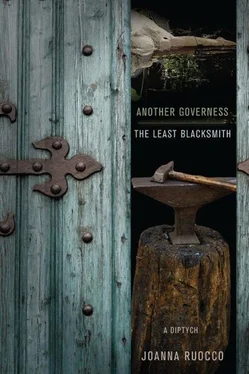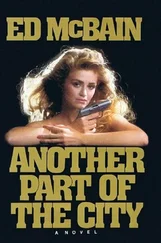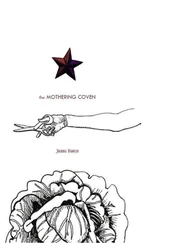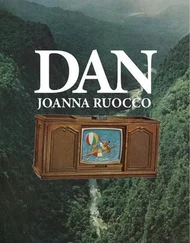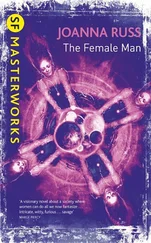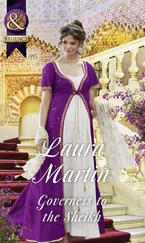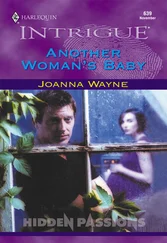I wander away from the wharves to the center of the town. The streets are wider in the center of the town. I stand in the middle of the street. I have my back to the bay. Nothing blocks the view of the forge. The crest of the hill is bare. Our father cut the trees for charcoal. There is smoke in the blue sky above the forge. I can hear my brother working high above the town. The sounds travel on the air. I am hungry from my walk. I eat all of the loaf of bread I bought from the baker. I eat standing in the middle of the street. I am very hungry. I look through the display windows of the buildings. One of the buildings displays hammers in the window. The display is of a high quality. Hammers are mounted on hooks that fit through holes in a board. The hammers have different colored handles. Other than the colors of the handles the hammers are the same. The difference between the hammers is purely decorative. I enter the building. It is a hardware store. There are bins of machined nails and bolts. The clerk tries to speak with me. I will not speak to the clerk. I leave the store immediately. It is urgent that I return to the forge, but I have no bread. I go again to the bakery. The doctor enters the bakery as the baker hands me the loaf of bread in a paper bag. I wait for the doctor to make his purchase. The doctor does not look at me. He buys seeded rolls. I am too embarrassed to speak to the doctor, but I follow him back to his office. I pay attention to the turns the doctor makes. The doctor's office is at the end of a dead end street. There are bundles of newspapers outside of the office next door to the doctor's. I do not know how I would have forgotten that the doctor's office is next door to the newspaper office. The newspaper office must have moved. I do not think the newspaper office was located on a dead end street. Now that the doctor has gone into his office the street is empty. I pull a newspaper from a bundle and slide it into the bag with the bread.
I retrace my steps to the bakery but I make a mistake. I do not remember this intersection. I choose a street. The streets by the wharves are narrow and winding. I end up back by the bay. Now I am farther from the forge than I was when I followed the doctor to his office. I pass the muddy stretch on the edge of the bay. The knife with the broken blade is lying on the mud. All around the knife the mud is deeply gouged. There must have been a great struggle on the mud, a struggle for the knife. I slide the knife into the bag with the bread. I examine a dead fish on the mud. If its scales were bright I would pry off the scales with the broken blade of the knife, but the scales are dull. I leave the knife in the bag. Something moves by the hull of an overturned boat. A soldier is crouching by the overturned boat. He gestures. I cannot interpret the gesture of the soldier. The gesture must be a command. I hurry to the soldier. I have never seen a soldier crouched by a boat in the mud. The soldier stands as I approach. His hair and beard are very long, and his uniform is all one piece. I realize the soldier is a monk from the peninsula.
The monks from the peninsula make their uniforms out of cloth from the drapery, the same cloth that is cut into the uniforms for the soldiers. Unlike the uniforms of the soldiers, the uniforms of the monks are not cut into shirts and trousers. Their uniforms are all one piece. A soldier would never wear a uniform that was all one piece. Soldiers need uniforms that are two pieces, shirts and trousers. Now that I know that the soldier is a monk, I do not have to obey his gesture. I can walk away. I hope that I was not seen obeying the monk's gesture. The wharves have emptied, but someone could be watching from an office window or from the high deck of a ship. As I turn to walk away from the monk, I notice he is wearing an iron talisman. The talisman looks familiar. I ask the monk about the talisman, but he shakes his head. He is a monk who does not speak. The monk rummages in his sack. He puts a jar of gooseberry jam in my hand. He holds out his hand. I put the jar back in his hand. The monk continues to hold out his hand with the jar balanced on his palm. Even though I look down at the mud, I can tell that the monk is looking at me.
I begin to walk away from the monk. From behind, I hear a high, thin sound. The sound is high enough to make a pain in my ear. I turn. The monk's arm is straight out, the jar balanced on his hand. The monk is screaming. He has not opened his mouth to scream, or he is screaming with his mouth open to a slit that is hidden by his beard. I go and take the jar from the monk. The monk screams louder. He lifts the empty hand to my face. His fingers are curled. I see the long cracked nails with dirt in the cracks. The nails come close to my mouth. The monk screams louder and louder. Someone will think I am abusing the monk. I put the last of my brother's money in the monk's hand. The monk closes his hand around the money. The scream stops. I can still feel air coming out of the monk. The monk is forcing air from his lungs with no sound. I back away. The monk does not move. He looks at me, with his eyes stretched open wide and his mouth hidden by his beard. He lowers his closed hand to his side.
I am so late that I run up the hill. The clanging from the forge is very loud. My brother is working hard. I go into our house. Nothing has moved. My brother did not break for lunch. Two chairs are pushed out from the table. Our father's ledgers are piled at one end of the table. There are two dishes on the table. There is a fork on each dish. I swat the flies from the dishes. I unwrap the meat. I fry strips of meat. I slide the bread from its paper bag. The crust of the bread has grayed with ink from the newspaper. I fry the bread in the grease from the meat. I put the meat and the bread on the dishes. I put most of the meat and bread on my brother's dish. Before I take the dishes to the forge, I remember to take the knife with the broken blade from the bag. I do not want my brother's help repairing the knife. I should be able to repair the knife easily. I hide the knife in my bed between the bed mat and the frame. I realize I have already begun to refer to the knife as the “champion's knife.” When I repair the knife I will be the champion of the wharves.
My brother is too hungry to ask questions about what I did all day in town. He eats standing up at the anvil. I eat standing at the double doors. I have no difficulty emptying my dish, even though I ate the loaf of bread earlier in the afternoon. I must be growing. I look out at the bay. The sun is low over the bay. The air over the bay contains the highest quantity of salts. My brother told me the air over the bay is so thick with salts the salts cause optical illusions. This is why the sun appears so large over the bay. It is magnified by the prisms of the salts. My brother is wrong. The sun is very large, far larger than it appears over the bay. The sun is larger than the world. Salts in the air must shrink the image of the sun. This is why we see the sun as a disc instead of a burning plane that fills the sky. My brother tries to repeat what our father told him. For the first time I am hearing our father's stories. It must have been different to hear the stories from our father. Our father was never wrong. Something happens to our father's stories when my brother repeats them. They are changed. My brother believes what he repeats. He does not realize there is a difference between the stories he repeats and our father's stories. There must be a difference.
I look out at the bay. The whole sky is bright. The sun is a disc, low and dull in the sky. The brightness of the sky does not come from the disc. The sky and the disc are illusions caused by the salts in the air. Behind them is the burning plane. I can almost see it. I have to open my eyes wide and look toward the outside corner of each eye. Then I can almost see it. No one taught me this skill. I taught myself. I am the only person in the town who can see through the sky. If the doctor ran tests on me in his office, he might discover the physiological basis of this skill. His machines might express the physiological basis of this skill graphically, making finely inked lines. Instead of describing my skill, I could show people a printout from the doctor. Everyone would admire the beautiful waveforms on the printout, waveforms emitted by my brain and inked by the doctor's machines.
Читать дальше
